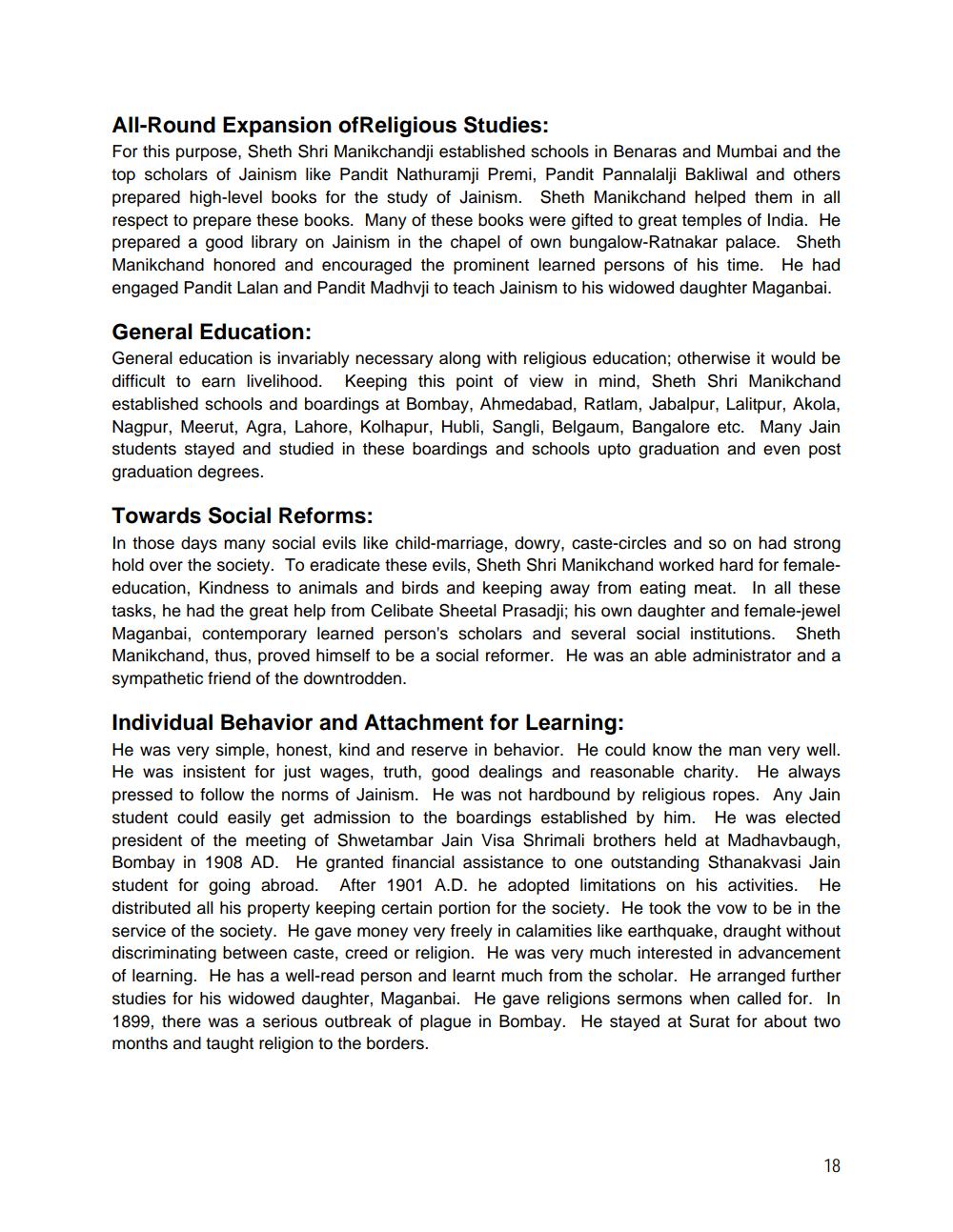________________
All-Round Expansion ofReligious Studies:
For this purpose, Sheth Shri Manikchandji established schools in Benaras and Mumbai and the top scholars of Jainism like Pandit Nathuramji Premi, Pandit Pannalalji Bakliwal and others prepared high-level books for the study of Jainism. Sheth Manikchand helped them in all respect to prepare these books. Many of these books were gifted to great temples of India. He prepared a good library on Jainism in the chapel of own bungalow-Ratnakar palace. Sheth Manikchand honored and encouraged the prominent learned persons of his time. He had engaged Pandit Lalan and Pandit Madhvji to teach Jainism to his widowed daughter Maganbai.
General Education:
General education is invariably necessary along with religious education; otherwise it would be difficult to earn livelihood. Keeping this point of view in mind, Sheth Shri Manikchand established schools and boardings at Bombay, Ahmedabad, Ratlam, Jabalpur, Lalitpur, Akola, Nagpur, Meerut, Agra, Lahore, Kolhapur, Hubli, Sangli, Belgaum, Bangalore etc. Many Jain students stayed and studied in these boardings and schools upto graduation and even post graduation degrees.
Towards Social Reforms:
In those days many social evils like child-marriage, dowry, caste-circles and so on had strong hold over the society. To eradicate these evils, Sheth Shri Manikchand worked hard for femaleeducation, Kindness to animals and birds and keeping away from eating meat. In all these tasks, he had the great help from Celibate Sheetal Prasadji; his own daughter and female-jewel Maganbai, contemporary learned person's scholars and several social institutions. Sheth Manikchand, thus, proved himself to be a social reformer. He was an able administrator and a sympathetic friend of the downtrodden.
Individual Behavior and Attachment for Learning:
He was very simple, honest, kind and reserve in behavior. He could know the man very well. He was insistent for just wages, truth, good dealings and reasonable charity. He always pressed to follow the norms of Jainism. He was not hardbound by religious ropes. Any Jain student could easily get admission to the boardings established by him. He was elected president of the meeting of Shwetambar Jain Visa Shrimali brothers held at Madhavbaugh, Bombay in 1908 AD. He granted financial assistance to one outstanding Sthanakvasi Jain student for going abroad. After 1901 A.D. he adopted limitations on his activities. He distributed all his property keeping certain portion for the society. He took the vow to be in the service of the society. He gave money very freely in calamities like earthquake, draught without discriminating between caste, creed or religion. He was very much interested in advancement of learning. He has a well-read person and learnt much from the scholar. He arranged further studies for his widowed daughter, Maganbai. He gave religions sermons when called for. In 1899, there was a serious outbreak of plague in Bombay. He stayed at Surat for about two months and taught religion to the borders.
18




